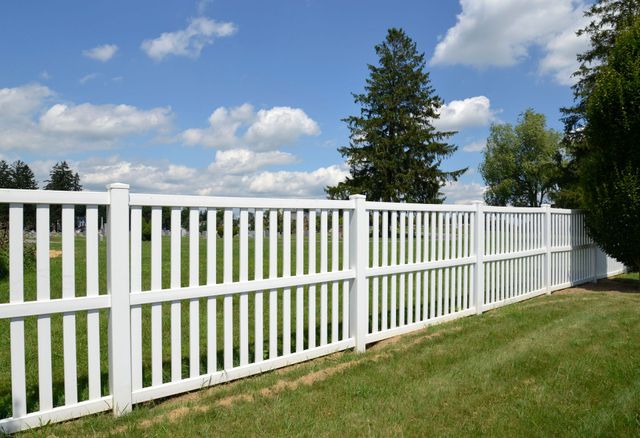All Categories
Featured

When preparing to set up a fencing around your home, among the very first actions is recognizing the allowing requirements in your location. While the procedure might seem straightforward, neighborhood laws can vary significantly depending on where you live. Securing the appropriate licenses prior to beginning the installation is critical to stay clear of possible fines, disagreements with neighbors, and even having to eliminate your fencing. Here's what you need to find out about acquiring the essential authorizations for your fence installment.
Why Do You Need an Authorization for a Fencing? A license is often required for fencing installments to guarantee conformity with regional building ordinance, zoning legislations, and security regulations. Allowing assists regional authorities maintain harmony in community visual appeals, safety and security, and ecological factors to consider. It likewise makes sure that the fence does not interfere with utility lines or public spaces, and that it abides by height and limit restrictions.

Usual Authorizations Required for Fence Installment. Building Permit. A lot of locations require a structure permit for fencing installment, particularly if the fence surpasses a particular height (generally over 6 feet) or is made from non-standard materials. This authorization makes certain that your fence abides with local building ordinance. In some locations, the building department will examine the site to make sure that the fence fulfills security and architectural criteria.
Zoning License. Zoning licenses are designed to make sure that your fencing sticks to neighborhood zoning regulations, consisting of troubles from residential or commercial property lines, easements, and rights-of-way. Zoning regulations vary from city to city, and in some situations, your fencing may need to be held up a particular variety of feet from the walkway or road. If your fence is in a historic area or other specially marked locations., a zoning permit may additionally be required.

Fence License. In some areas, a specific "fencing license" may be needed. Some cities restrict chain-link fencings in front backyards or have particular rules for personal privacy fences.
HOA Authorization. You might need authorization prior to mounting a fencing if your home is component of a house owners organization (HOA) HOA standards often consist of details regulations about the kind, elevation, color, and materials for fences to keep the area's aesthetic appeals. HOA policies can be stricter than city codes, so always inspect their guidelines before moving on.
Easement or Energy Permits. If your fence will be near or across an easement (such as an utility easement), you may need to acquire approval from the energy firm or various other entities that control the land. This is particularly essential if you plan to mine fence posts, as it ensures you won't harm underground energies like power, gas, or water lines.
Just How to Discover What Allows Are Called for. The best means to determine which permits are necessary for your fence setup is to call your regional building department or metropolitan workplace. They can offer you with specific information concerning requirements in your location. Here are a few steps you can take to discover:
Check the City or County Website: Lots of neighborhood governments offer details concerning fencing installment permits online. Search for structure or zoning sections on their site. Call or Go To Local Government Offices: If the details is not readily offered online, calling or checking out the local office face to face can clarify what's needed. Speak With an Expert Contractor: If you're not sure or overwhelmed by the process, a regional service provider or fencing setup company can aid in navigating the allowing process, as they're familiar with local guidelines. What Occurs If You Do Not Obtain an Authorization? In several areas, you might face penalties, and your fence may be ordered to be eliminated. Permitting ensures that your fence is compliant and assists avoid future difficulties.
Verdict. Prior to setting up a fencing around your property, it's necessary to check whether a license is called for in your location. Structure authorizations, zoning permits, HOA authorization, and utility permissions might all play a function in your fence setup process. Putting in the time to study and obtain the needed permits will certainly not only guarantee that you're complying with local laws, yet likewise help protect your financial investment and maintain the integrity of your building.
Latest Posts
Experience the Style of Hardwood Flooring with Carpet Interiors Floor & Home
Published Apr 19, 25
1 min read
Exploring the Perks of WyHy Share Interest-bearing Account
Published Apr 19, 25
1 min read
Stress-Free Birthday Celebration Celebration Preparation at FunCity Resort
Published Apr 19, 25
1 min read
More
Latest Posts
Experience the Style of Hardwood Flooring with Carpet Interiors Floor & Home
Published Apr 19, 25
1 min read
Exploring the Perks of WyHy Share Interest-bearing Account
Published Apr 19, 25
1 min read
Stress-Free Birthday Celebration Celebration Preparation at FunCity Resort
Published Apr 19, 25
1 min read